The Pre-Trial Chamber III of the International Criminal Court has authorized Prosecutor Fatou Bensouda to open an investigation into Burundi. A blow for Bujumbura.
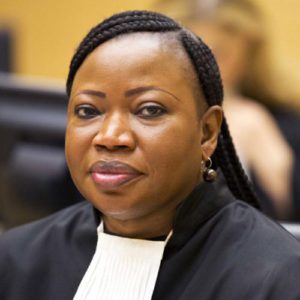
Fatou Bensouda will investigate alleged crimes against humanity committed in Burundi.
Composed of Judge Chang-ho Chung, Judge Antoine Kesia-Mbe Mindua and Judge Raul C. Pangalangan, this Pre-Trial Chamber III has found that the evidence presented by the ICC Prosecutor provides a reasonable basis for an investigation. It concerns crimes against humanity allegedly committed in Burundi and, in some cases, outside the country from 26 April 2015 by Burundian nationals.
The ICC gives an estimate of more than 1,200 people killed, thousands of cases of illegal detentions as well as hundreds of cases of disappearances. The alleged violence resulted in the displacement of 413,490 people between April 2015 and May 2017.
According to this court, these crimes were allegedly committed by state agents including the police, the National Intelligence Service, units of the Burundian army jointly with members of the Imbonerakure Youth League of the ruling party.
What about the jurisdiction of the ICC?
The prosecutor is therefore authorized to extend her investigation into crimes committed before April 26, 2015 or continuing after October 26, 2017, if certain legal conditions are met.
According to the communiqué of this court in The Hague, the Pre-Trial Chamber III first issued its decision under seal on 25 October 2017. It exceptionally accepted that the procedure relating to the application for authorization to investigate is conducted under seal with the participation of the prosecutor alone.
Despite Burundi’s definitive withdrawal from the ICC, this court nevertheless remains competent, and any crime committed until October 26, 2017 will be included, she said. “The court can therefore exercise its jurisdiction even after the withdrawal has taken effect when the investigation or prosecution relates to the crimes allegedly committed at the time when Burundi was a State party to the Rome Statute.”
In addition, the ICC requires Burundi’s cooperation because it says “it authorized it on 25 October before the date on which the withdrawal took effect.”
This obligation to cooperate lasts as long as the investigation is under way and applies to any proceedings resulting from it.
The prosecutor indicates that she will not limit herself to the incidents and crimes described in the decision. On the basis of the evidence, she will extend her investigation into other crimes against humanity or genocide and war crimes, as long as it remains within the parameters of the investigation as it has been authorized. She deplores Bujumbura’s inaction. Therefore, there is no jurisdictional conflict between the ICC and Burundi.
Fatou Bensouda assures that she will collect the evidence independently, impartially and objectively.
The investigation may last as long as necessary. If sufficient evidence of criminal responsibility is established, the prosecutor will request to issue summonses or arrest warrants to the suspects.
It’s a blow for Bujumbura which thought it was done with the ICC. It believed it was safe from prosecution since its final withdrawal on 27 October. Demonstrations of joy were held throughout the country, with the authorities welcoming the withdrawal from this court judged as “the imperialist and corrupt instrument.”
>>Reactions
 Willy Nyamitwe: “Pre-dated authorization”
Willy Nyamitwe: “Pre-dated authorization”
In a series of tweets, the presidential advisor in charge of communication, Willy Nyamitwe, didn’t pull his punches: “#Burundi: @IntlCrimCourt cheating is here on the move. This authorization is ante-dated (25-10-2017). The hashtag #Twenga is well indicated here because the #ICC will give us its “fiction” part. He adds: “The corrupt #ICC, has just shown its real image again. Cheating is obvious. No doubt #Burundi will win this battle; this is the last card of the West. ”
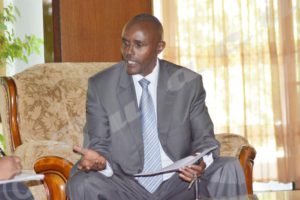 Tatien Sibomana: “We are satisfied”
Tatien Sibomana: “We are satisfied”
For Tatien Sibomana, a politician, when there are UN resolutions, the member states must be consistent: “The country concerned has an interest in cooperating, otherwise the process does not stop.” He reminds that the Commission of Inquiry had concluded on the existence of human rights violations in Burundi. In addition, it showed that justice did not do its job properly to sue the perpetrators.
Thus, Mr. Sibomana believes that it goes without saying that the ICC, created to compensate for such failures of different national judicial systems, gets the prosecution started. He concluded: “We are satisfied with the outcome”.
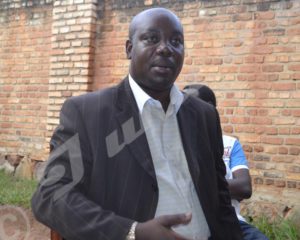 Aimé Magera: “Good news”
Aimé Magera: “Good news”
The spokesman for Agathon Rwasa, says FNL, welcomes the news with satisfaction. Pro- Rwasa FNL members have paid a heavy price and are the first victims of the crimes committed in Burundi since 2005: “Remember the Safisha plan, the execution of our members in Muyinga province in 2006, the abusive arrests followed by assassinations. Mr Magera says his political formation has always asked for justice for these victims. “This announcement partly responds to our grievances. So, says Magera, the decision comes to remind Bujumbura that it cannot escape justice. Authorities are instead required to cooperate with international justice. “This decision of the ICC dates from October 25, 2017, before Burundi’s official withdrawal from the Rome Statute.” However, the spokesman for Agathon Rwasa has some reservations: “It is true that it is a question of ‘a big step but as long as the regime of Bujumbura remains in control, the situation may remain the same. He asks the UN to implement resolution 2303 and influence the AU to send an intervention force to Burundi to protect the population.
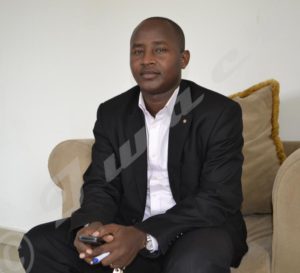 Lambert Nigarura: “Victory for the victims”
Lambert Nigarura: “Victory for the victims”
This human rights activist quickly reacted on his twitter account: “#Burundi, victory for the victims of the crimes in Burundi, the ICC decides to initiate investigations” He added: “#Burundi, the recreation is over, a sigh of relief for the families of the victims @IntlCrimCourt »
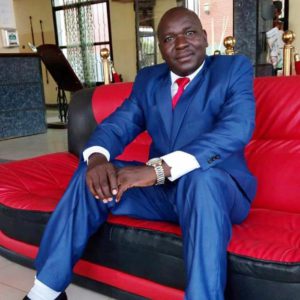 François-Xavier Ndaruzaniye: “We will oppose it”
François-Xavier Ndaruzaniye: “We will oppose it”
For François-Xavier Ndaruzaniye, president of Izere Ntiwihebure League, Burundi is no longer concerned by this “coercive instrument” from the West. The judges of the ICC are corrupt. He said: “We will oppose it like the USA that refused these pseudo-investigations on the American soldiers in Afghanistan.”
Illumination by ICC
Why was the chamber’s decision initially under seal and why was its notification delayed?
On 5 September 2017, the Chamber received the Prosecutor’s request for authorization of the investigation under seal, only available to the Prosecutor. The Chamber accepted, exceptionally and after ordering the Prosecutor to provide additional information, to conduct the authorisation proceedings under seal and only with the participation of the Prosecutor in order to attenuate risks to the life and well-being of victims and potential witnesses.
The Chamber considered that multiple sources indicated that the incumbent Government of Burundi has interfered with, intimidated, or harmed victims and potential witnesses. It noted further that the Government of Burundi had suspended international cooperation in connection with the alleged crimes and has denied access to the members of the United Nations Independent Investigation in Burundi. The Chamber concluded that, on the basis of the available documentation, there is a danger to the life or well-being of victims and potential witnesses and that the integrity of the ICC investigation may be compromised.
The Chamber also clarified that State(s), which would normally exercise jurisdiction over the alleged crimes, do not enjoy any participatory rights during the authorisation process.
In addition, mindful of the continued risks facing the victims and potential witnesses in Burundi and neighbouring States as well as the lack of international cooperation on the part of the Burundian authorities, the Prosecutor was allowed to delay the notification of the initiation of the investigation to States normally exercising jurisdiction over the alleged crimes for a period of 10 working days after the issuance of the authorisation decision. This limited delay was granted exceptionally and for the sole purpose of allowing the ICC Prosecutor and the Court’s Registry to prepare and implement protective measures for victims and potential witnesses to mitigate potential risks within the period of 10
working days.
By Agnès Ndirubusa, Christian Bigirimana, Renovat Ndabashinze, Fabrice Manirakiza and Egide Nikiza.



















 IWACU Open Data
IWACU Open Data

